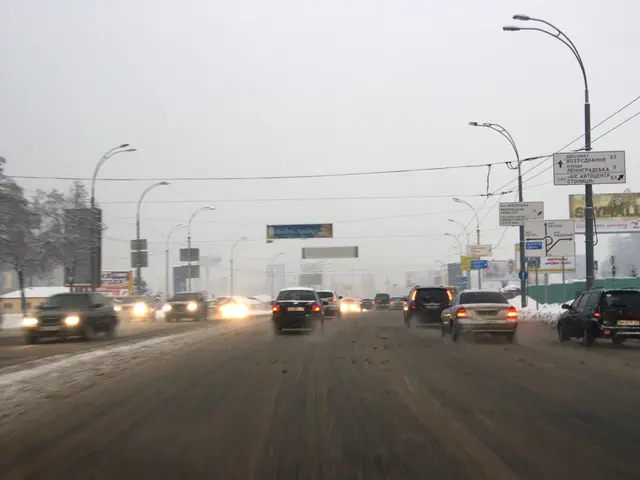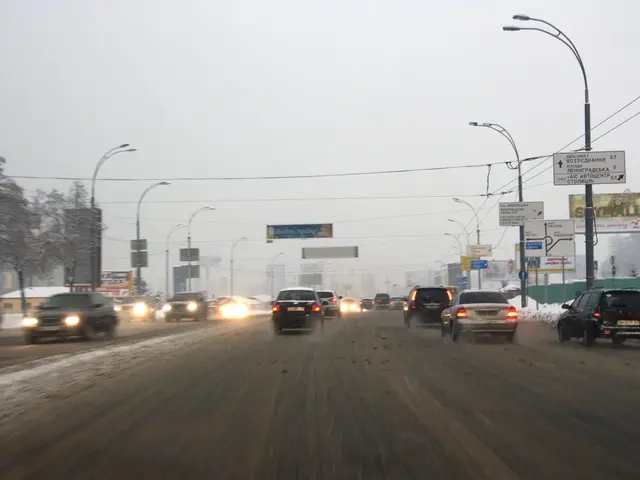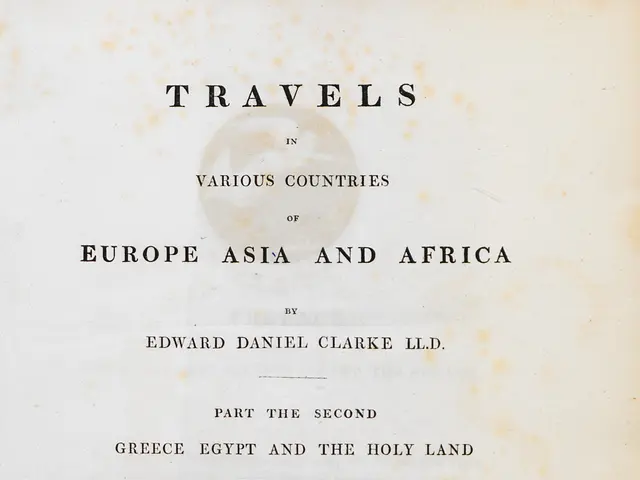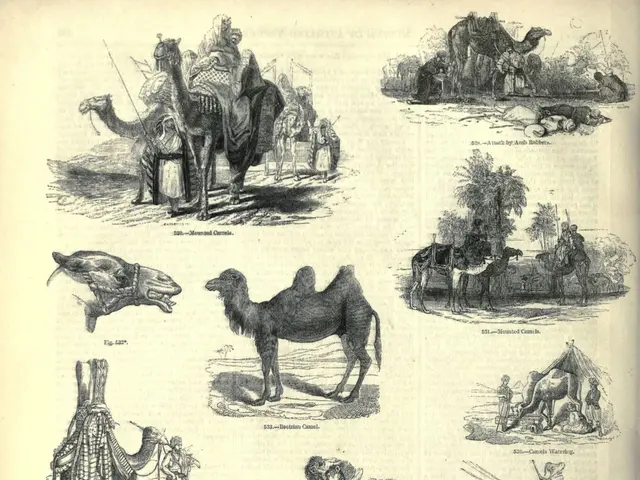Residents in Pakistani Kashmir instructed to amass food supplies due to heightened tensions with India.
Sparking Fears in Kashmir: Tensions Escalate Between India and Pakistan
态势在印度与ネパール之间的卡什米尔 heated up this week after a tragic incident on April 22, where gunmen launched an attack at the tourist spot of Pahalgam in Indian-administered Kashmir, claiming the lives of 26 innocent civilians.
India asserts that Pakistan played a part in backing the shooting on the unarmed civilians at Pahalgam, as a response, they have advised residents living near the de facto border to prepare for potential disruptions by stockpiling food for the next two months.
"Instructions have been issued to stock food supplies for two months in the 13 constituencies along the Line of Control (LoC)," the prime minister of Pakistan-administered Kashmir, Chaudhry Anwar ul Haq, addressed the local assembly.
The government has also established an emergency fund of one billion rupees ($3.5 million) to ensure the supply of "food, medicines and all other basic necessities" to the affected areas, according to the prime minister.
The tirade of events has raised concerns of significant conflict between the two nuclear-armed nations. In light of the escalating tensions, authorities in Pakistani Kashmir temporarily closed over 1,000 religious schools as a precautionary measure.
Over the years, both countries have engaged in numerous wars and conflicts over the disputed territory, with the most recent incidences includes the 1999 Kargil Conflict and the 2019 Balakot Airstrike. As tensions continue to escalate, both sides have been implementing various retaliatory measures.
(Rewritten with insights from France 24 and AFP)
Timeline of Escalation
- 22 April 2025: Militants linked to Pakistan-based groups such as Lashkar-e-Taiba (via TRF) launched an attack on civilians at Pahalgam in Indian-administered Kashmir, resulting in the deaths of 26 innocent people (source: TRT World, Hindustan Times).
- Post-attack: India intensified counterterrorism operations and reinforced security in Kashmir, accusing Pakistan of harboring militants (source: Global Times).
- Late April 2025: Cross-border shelling was reported along the Line of Control, with both countries downgrading diplomatic ties (source: TRT World).
- May 2025: Pakistan threatened to suspend the 1972 Simla Agreement, risking a formal collapse of bilateral conflict-resolution frameworks (source: Hindustan Times).
Escalation Measures
- India
- Security Crackdown: Deployed additional troops, restricted civilian movement, and curtailed media freedoms in Kashmir (source: TRT World).
- Military Posturing: Increased cross-border strikes and surveillance along the LoC (source: Global Times).
- Political Moves: Maintained Kashmir’s demoted semi-autonomous status (revoked in 2019) while accelerating non-local settlement policies (source: Middle East Eye).
- Pakistan
- Ceasefire Threat: Warned of suspending the Simla Agreement, risking the collapse of bilateral conflict-resolution frameworks (source: Hindustan Times).
- Militant Allegations: Accused India of state-sponsored repression in Kashmir and targeted propaganda (source: Daily Schengen).
- Diplomatic Downgrade: Reduced embassy staff and halted trade talks (source: Express Tribune).
Historical Context
- 1947–48 War: First war over Kashmir’s accession post-Partition (source: BBC).
- 1965 and 1971 Wars: Clashes over territorial disputes and Bangladesh’s independence (source: Global Security).
- 1999 Kargil Conflict: Pakistan-backed incursions into Indian territory (source: BBC).
- 2019 Balakot Airstrike: India’s retaliation for a Kashmir suicide bombing, followed by Pakistan’s aerial counterstrike (source: Al Jazeera).
The current state of affairs reflects longstanding volatility, now compounded by nuclear capabilities and militant proxy warfare (source: BBC).
- The tragic shooting incident on April 22, 2025, in Pahalgam, Indian-administered Kashmir, involving dozens of casualties, has been linked to militant groups based in Pakistan, according to reports from TRT World and Hindustan Times.
- In response to the attack, India has been ready for potential war-and-conflicts, fortifying its security in Kashmir and conducting increased counterterrorism operations, while accusing Pakistan of harboring militants, as stated in the Global Times.
- In late April 2025, cross-border shelling escalations along the Line of Control (LoC) were reported, and both countries downgraded their diplomatic ties, as detailed by TRT World.
- Amid the rising tensions, Pakistan threatened to misadventure the 1972 Simla Agreement, which could result in a formal collapse of bilateral conflict-resolution frameworks, as noted in the Hindustan Times.










